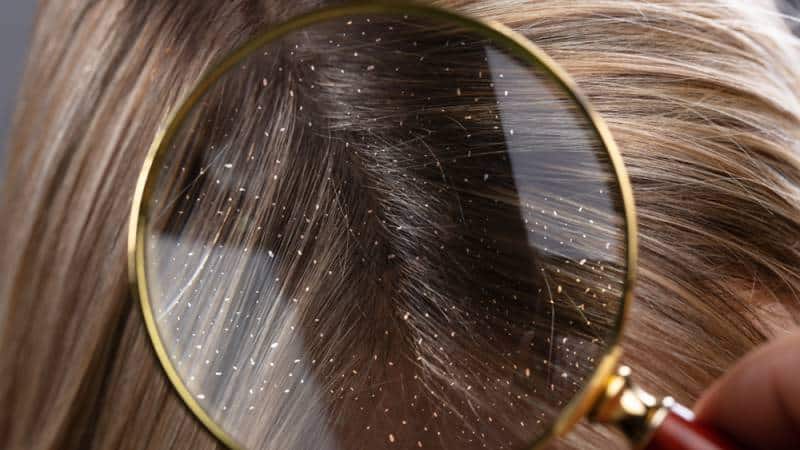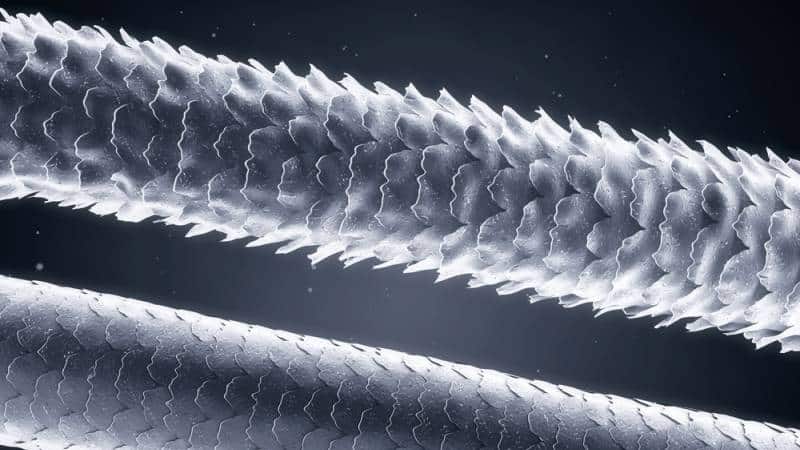Dandruff is a common scalp condition that causes flakes of skin to appear on the hair and shoulders. It’s not contagious, but it can be embarrassing and difficult to get rid of. While there are many commercial products available to treat dandruff, they can be expensive and contain harsh chemicals. Fortunately, there are many natural ways to get rid of dandruff that is just as effective as store-bought products.
So, if you are struggling with an itchy or flaky scalp, what are some of the best ways to get rid of dandruff?
Here are 9 effective ways to get rid of dandruff that you can easily do at home:
- Use a medicated shampoo: One of the simplest and most effective ways to treat dandruff is to use a medicated shampoo specifically designed for this purpose. These shampoos typically contain ingredients that help reduce the amount of yeast on your scalp, such as ketoconazole, selenium sulfide, or zinc pyrithione. You can find these products at most drug stores and grocery stores, or even online.
- Use an anti-dandruff conditioner: Along with using a medicated shampoo for dandruff, you may also want to consider using an anti-dandruff conditioner. This will help keep your hair moisturized and reduce the amount of moisture lost from your scalp.
- Use apple cider vinegar: Another popular remedy for getting rid of dandruff is to use apple cider vinegar on your scalp, as this can help restore its natural pH level and soothe inflammation caused by a dry scalp. You can either rinse your hair with diluted apple cider vinegar or add a few tablespoons of it to a cup of water and use this as a final rinse after shampooing.
- Consider tea tree oil: Tea tree oil is another natural remedy for dandruff that has been used for centuries to treat skin conditions and infections such as acne and eczema. It is known for its anti-fungal, anti-bacterial, and anti-inflammatory properties, so adding a few drops of tea tree oil to your shampoo or applying it directly to the scalp can help reduce dandruff symptoms.
- Increase your intake of vitamins A and B12: If you want to get rid of dandruff for good, it’s important to address any underlying nutritional deficiencies that may be contributing to your problem. For example, increasing your intake of vitamins A and B12 can help keep your scalp healthy, nourished, and balanced so that it is less likely to have an overproduction of skin cells.
- Improve your diet: Other dietary changes that can help improve your dandruff symptoms might include eating more anti-inflammatory foods and avoiding those that trigger inflammation or overstimulating the sebaceous glands, such as sugar, alcohol, chocolate, and caffeine. You may also benefit from taking a high-quality probiotic complex to help balance your gut flora, as an imbalance in this area can contribute to dandruff.
- Try a topical steroid cream: In some cases, dandruff may be caused or worsened by a skin condition such as seborrheic dermatitis that results from inflammation of the skin and scalp. If you have been dealing with symptoms such as flaking, irritation, and redness of your scalp, the use of a topical steroid cream may help to reduce inflammation.
- Consider other holistic remedies: If you want to get rid of dandruff once and for all, you may also want to consider incorporating some alternative or holistic treatments into your hair care routine. For example, applying a mixture of olive oil and lemon juice to your scalp or using yogurt as a rinse after shampooing may help soothe inflammation.
- Finally, taking a warm bath with a few drops of lavender essential oil or using aloe vera gel in your hair can also help to keep your scalp healthy and reduce inflammation.
Although dandruff may be frustrating to deal with, it is relatively easy to manage and treat. By following the tips listed above, you can finally get rid of your dandruff and enjoy healthy, flake-free hair again!
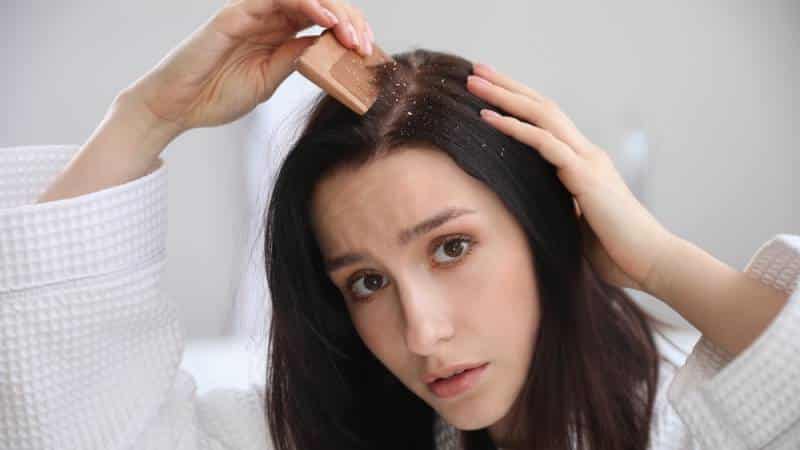
What if You Have Tried It All and Your Dandruff is Still There?
If you have tried all the above remedies and your dandruff is still there, you may want to consult with a dermatologist. Dandruff can be caused by different things so when everything else fails, it’s better to be safe than sorry.
All you need is a good doctor who knows what he/she’s doing, and you will be able to find the root cause and get rid of dandruff once and for all. You may also want to speak with a nutritionist about your diet, as some deficiencies or imbalances in this area can contribute to dandruff.
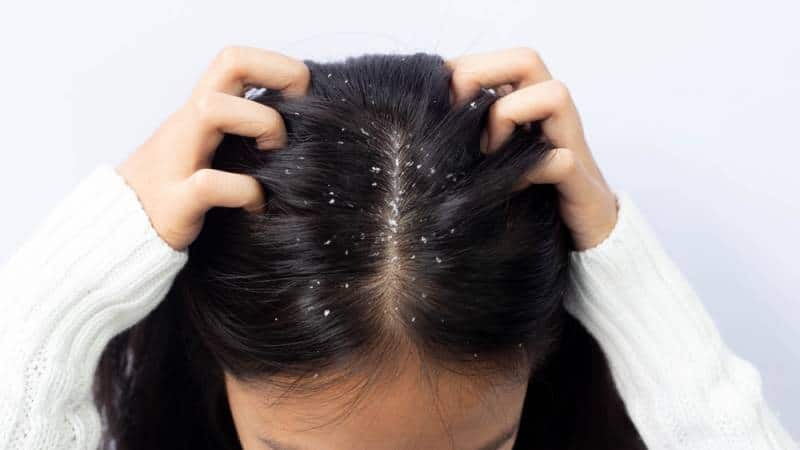
What Might Be Some of the Reasons for Dandruff?
There are many reasons why you can get dandruff, with some of the more common ones being dry skin and overactive sebaceous glands. In terms of diet, being deficient in vitamins A and B12 can contribute to dandruff because they help your scalp maintain its natural balance of oils. Additionally, certain medical conditions such as seborrheic dermatitis, eczema, and psoriasis can cause a build-up of skin cells on the scalp.
Other factors that may increase your chances of dandruff include stress, hormonal changes, seasonal weather conditions, and certain hair care products or practices. For example, using styling tools such as curling irons, straighteners, and hair dryers excessively can lead to a damaged scalp that is more susceptible to dandruff. Additionally, the use of products with alcohol or sodium chloride can have a drying effect on your scalp and disrupt its natural balance.
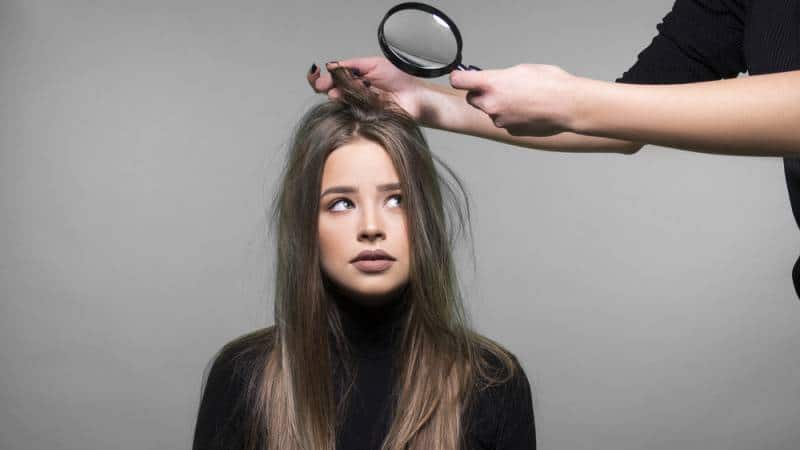
Why is It Important to Take Care of Your Scalp if You Have Dandruff?
Although dandruff may seem like a minor issue, poor scalp health can lead to more serious problems such as hair loss. Dandruff is typically caused by an overgrowth of skin cells on the scalp, a condition known as seborrheic dermatitis. This can cause scaling, itching, and flaking of the scalp, all of which can result in hair breakage if left untreated.
In turn, this can lead to a greater risk of both temporary and permanent hair loss. In fact, according to the American Academy of Dermatology (AAD), an estimated 50% of men will experience pattern hair loss at some point in their lives, often due to a condition like seborrheic dermatitis. Therefore, it is important to take steps to care for your scalp if you have dandruff for the sake of both your current and future hair health.
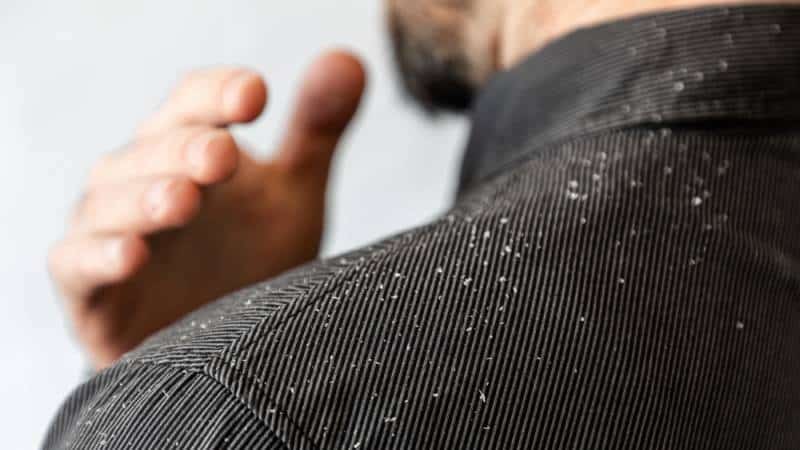
How to Prevent Dandruff in the First Place?
There are a number of things you can do to prevent dandruff and keep your scalp healthy. Some of the most effective strategies include regularly washing and conditioning your hair, using high-quality products that are designed for use on the scalp, and avoiding harsh styling tools or practices that can damage your scalp.
You may also want to consider modifying your diet, as certain nutritional deficiencies can increase your risk of dandruff. Eating a balanced diet that is rich in vitamins A and B12, for example, can help keep your scalp healthy by maintaining the natural balance of oils on your skin.
Additionally, avoiding certain foods that can irritate the skin or trigger inflammation can help reduce dandruff flare-ups.
It is also important to manage stress levels and avoid excessive exposure of your scalp to extreme temperatures, as these can contribute to dandruff by weakening the natural barrier function of your skin.
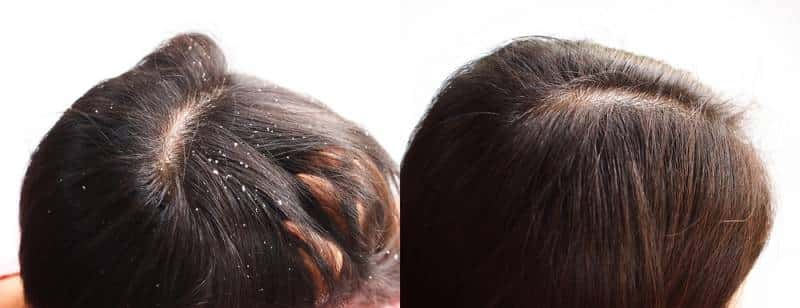
Final Thoughts
Have you been struggling with dandruff for a long time? If so, we recommend trying some of the tips listed above to help you take control of your symptoms and finally get rid of that pesky dandruff!
At the same time, it is important to remember that if your dandruff does not improve or gets worse after trying these methods, you should consult with a dermatologist to explore other possible treatment options. In the end, your overall scalp health is key for maintaining beautiful, healthy hair!
